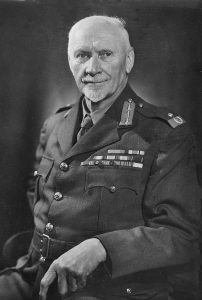Churchill, Smuts and Apartheid: Questions and Answers
I read your article about busting four myths about Winston Churchill from The Federalist. Here is an article I’d like you to read and hear your feedback: “Apartheid, made in Britain: Richard Dowden explains how Churchill, Rhodes and Smuts caused black South Africans to lose their rights.” (The Independent, 19 April 1994.) —David E., Ohio

Accurate, But Not Dispositive
Mr. Dowden’s article seems to me broadly accurate, but not dispositive.
It is true that Britain dropped its opposition to making South Africa a “white man’s country” in 1909 by passing the Union of South Africa Act. Winston Churchill supported that Act because he saw it as the way to ease lingering tensions with the Boers. He justified his support by saying explicitly that it was the best possible solution, but he did not like it.
Churchill was a political man. He needed, and thought he needed, the votes of a majority. If he lived in an age of prejudice (and every age is that) then of course he would be careful how he offended those prejudices. See “Churchill and Racism.”
Apartheid and Smuts
It is quite true that Smuts believed in a “white man’s country” and in segregation in his earlier years. But the article doesn’t mention that when the pro-Apartheid National Party won the 1948 election, it defeated Smuts, who had run in support of the Fagin Commission, which had recommended relaxing segregation.
Early on, Churchill and Smuts expressed very unfashionable attitudes toward races their societies generally considered inferior. In 1899, Churchill tells his Boer captors that blacks are entitled to the same rights as any others in the British Empire.* In 1939, Smuts writes an essay for a commemorative book on Gandhi’s 70th birthday. Although Churchill and Smuts were Gandhi adversaries at times, they had a mutual respect and even admiration for each other. See “Welcome, Mr. Gandhi.”
*Pretoria, 1899
Churchill’s Boer captor: “No, no, old chappie, we don’t want your flag; we want to be left alone. We are free, you are not free.”
Churchill: “How do you mean ‘not free’?”
Boer: “Well, is it right that a dirty Kaffir should walk on the pavement [sidewalk]—without a pass too? That’s what they do in your British Colonies. Brother! Equal! Ugh! Free! Not a bit. We know how to treat Kaffirs….We know how to treat Kaffirs in this country. Fancy letting the black filth walk on the pavement!….Educate a Kaffir! Ah, that’s you English all over. No, no, old chappie. We educate ’em with a stick. Treat ’em with humanity and consideration—I like that. They were put here by the God Almighty to work for us. We’ll stand no damned nonsense from them. We’ll keep them in their proper places.”
Churchill: “Probing at random I had touched a very sensitive nerve. What is the true and original root of Dutch aversion to British rule?… British government is associated in the Boer farmer’s mind with violent social revolution…. The dominant race is to be deprived of their superiority; nor is a tigress robbed of her cubs more furious than is the Boer at this prospect.”
—From Winston S. Churchill, London to Ladysmith via Pretoria (1900), 59-60.






